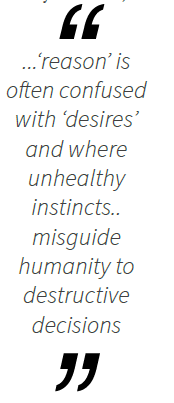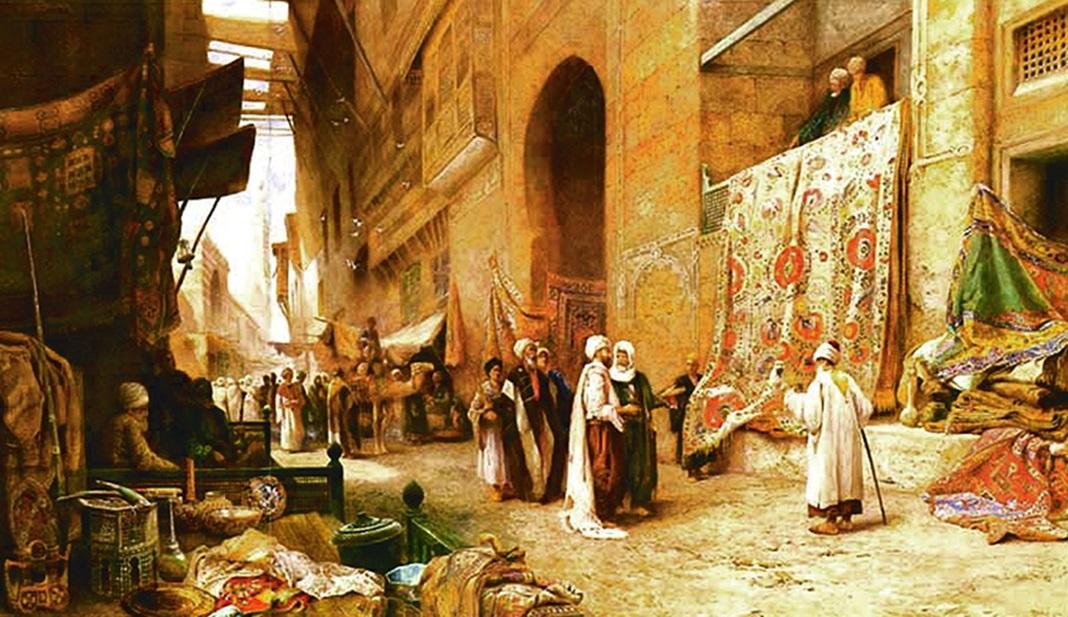Previous: Introduction To Islamic Finance: Setting The Stage
Before the details of Islamic modes of financing are discussed, it seems necessary to explain some points concerning the basic principles that govern the whole economic set-up in an Islamic way of life.
Belief In Divine Guidance
The foremost belief around which all the Islamic concepts revolve is that the whole universe is created and controlled by One, the only One God. He has created man and appointed him as His vicegerent  on the earth to fulfil certain objectives through obeying His commands.
on the earth to fulfil certain objectives through obeying His commands.
These commands are not restricted to some modes of worship or so-called religious rituals. They, on the contrary, cover a substantial area of almost every aspect of our life. These commands are neither so exhaustive that straiten the human activities within a narrow circle, leaving no role for human intellect to play, nor are they so little or ambiguous that they leave every sphere of life at the mercy of human perception and desire.
Far from these two extremes, Islam has a balanced approach to govern the human life. On the one hand, it has left a very wide area of human activities to man’s own rational judgment where he can take decisions on the basis of his reason, assessment of facts and expedience.
On the other hand, Islam has subjected human activities to a set of principles which have eternal application and cannot be violated on superficial grounds of expediency based on human assessment.
The fact behind this scheme is that human reason, despite its vast capabilities, cannot claim to have unlimited power to reach the truth. After all, it has some limits beyond which it either cannot properly work or may fall prey to errors.
There are numerous domains of human life where ‘reason’ is often confused with ‘desires’ and where unhealthy instincts,  under the disguise of rational arguments, misguide humanity to wrong and destructive decisions.
under the disguise of rational arguments, misguide humanity to wrong and destructive decisions.
All those theories of the past which are held today to be fallacious, claimed, in their respective times, to be ‘rational’ but it was after centuries that their fallacy was discovered and their absurdity was universally proved.
IT is thus evident that the sphere of work delegated to human ‘reason’ by its Creator is not unlimited. There are areas in which human reason cannot give proper guidance or, at least, is susceptible to errors. It is these areas in which Allah Almighty, the Creator of the universe, has provided guidance through His revelations sent down to His prophets.
On the basis of this approach it is the firm belief of every Muslim that the commands given by the divine revelations through the last Messenger r are to be followed in letter and spirit and cannot be violated or ignored on the basis of one’s rational arguments or his inner desires.
Therefore, all the human activities must always be subject to these commands and must work within the limits prescribed by them. Unlike other religions, Islam is not confined to some moral teachings, some rituals or some modes of worship. It rather contains guidance in every sphere of life including socio-economic fields.
The obedience from servants of Allah is required not only in worship, but also in their economic activities, even though it is at the price of some apparent benefits, because these apparent benefits may go against the collective interest of the society.
Basic Difference Between Capitalist And Islamic Economy
Islam does not deny the market forces and market economy. Even the profit motive is acceptable to a reasonable extent. Private ownership is not totally negated.
Yet, the basic difference between capitalist and Islamic economy is that in secular capitalism, the profit motive or private ownership are given unbridled power to make economic decisions.  Their liberty is not controlled by any divine injunctions. If there are some restrictions, they are imposed by human beings and are always subject to change through democratic legislation, which accepts no authority of any superhuman power.
Their liberty is not controlled by any divine injunctions. If there are some restrictions, they are imposed by human beings and are always subject to change through democratic legislation, which accepts no authority of any superhuman power.
This attitude has allowed a number of practices which cause imbalances in the society. Interest, gambling, speculative transactions tend to concentrate wealth in the hands of the few. Unhealthy human instincts are exploited to make money through immoral and injurious products. Unbridled profit making creates monopolies which paralyse the market forces or, at least, hinder their natural operation.
Thus the capitalist economy which claims to be based on market forces, practically stops the natural process of supply and demand, because these forces can properly work only in an atmosphere of free competition, and not in monopolies.
It is sometimes appreciated in a secular capitalist economy that a certain economic activity is not in the interest of the society, yet, it is allowed to be continued because it goes against the interest of some influential circles who dominate the legislature on the strength of their majority.
Since every authority beyond the democratic rule is totally denied and ‘trust in God’ (which is affirmed at the face of every U.S. dollar) has been practically expelled from the socioeconomic domain, no divine guidance is recognized to control the economic activities.
The evils emanating from this attitude can never be curbed unless humanity submits to the divine authority and obeys its commands by accepting them as absolute truth and superhuman injunctions which should be followed in any case and at any price. This is exactly what Islam does. After recognizing private ownership, profit motive and market forces, Islam has put certain divine restrictions on the economic activities.
These restrictions being imposed by Allah Almighty, Whose knowledge has no limits, cannot be removed by any human authority. The prohibition of riba (usury or interest), gambling, hoarding, dealing in unlawful goods or services, short sales and speculative transactions are some examples of these divine restrictions.
All these prohibitions combined together have a cumulative effect of maintaining balance, distributive justice and equality of opportunities.
Next: Introduction To Islamic Finance: Asset-Backed Financing








 Dr. Bilal Philips
Dr. Bilal Philips